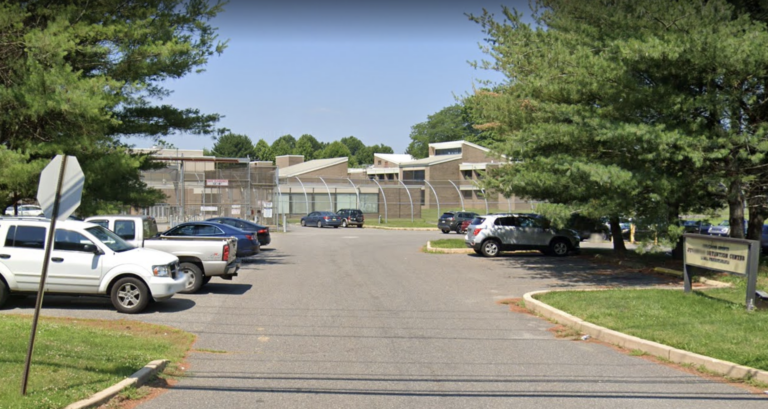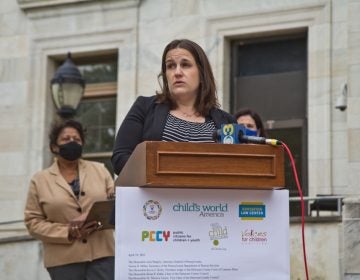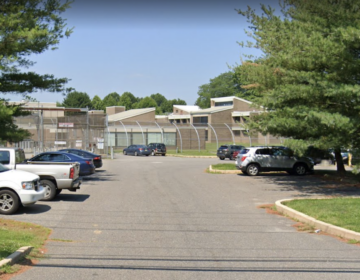Delco announces appointees to juvenile detention oversight board
The board will be in charge of bringing change to Delco’s juvenile justice system following closure of the its youth detention center due to allegations of child abuse.

Delaware County Juvenile Detention Center (Google Maps)
After introducing it last month, Delaware County Council unanimously adopted the heavily anticipated ordinance to establish the new 10-member Board of Managers of Juvenile Detention.
The board will be in charge of bringing change to Delaware County’s juvenile justice system following closure of the county’s youth detention center due to allegations of child abuse.
Upon the findings of the investigation, the board will be responsible for both the incarcerated children and corresponding facilities in the county.
“With the creation of this board of managers, it allows for Delaware County to go from being a laggard to being really at the forefront of how we can think about our youth,” Madden said during the public council meeting.
The board will be made up of councilmembers Kevin Madden, Dr. Monica Taylor, and Elaine Schaefer, County Controller Joanne Phillips, as well as six citizen appointments — three chosen by council chair and three chosen by President Judge Kevin Kelly of the Delaware County Court of Common Pleas.
There was significant interest in the three county positions — more than 30 people applied.
“It was really a tremendous outpouring of interest and enthusiasm and just relevant talent that, frankly, we didn’t even realize we had in our backyard, so it’s great to see the range and the experience that we have here,” Madden said in an interview with WHYY News.
The three council appointees are Marie Williams, senior program officer at the Stoneleigh Foundation; Chekemma Fulmore-Townsend, CEO of the Philadelphia Youth Network; and Christopher Eiserman, the second vice president of Delco’s Fraternal Order of Police Lodge 27.
The three judicial appointees are Nathaniel Nichols, a retired judge who oversaw juvenile dependency and delinquency courts in Delco; Candice Linehan, the assistant executive director, for Delco Women Against Rape; and Christine Ricks-Fletcher, a local parent.
There will be three separate term limits for each set of appointees: Two appointees — one from each group will have their term end in 2022, the next two — one from each group will have their term end in 2023, and so on.
Councilmember Schaefer “enthusiastically” expressed her support for the board during the public meeting — especially in an era where criminal justice reform has been brought to the forefront.
“It’s the silver lining out of a very troubling period … that we’re in a position where we can recreate and recast the way we face this problem,” Schaefer said.
The earliest the board can begin its work is June 14. Their first task: deciding the future of the county juvenile detention center in Lima, Pennsylvania that was closed due to abuse allegations.
At this point, it’s unclear if the facility will remain closed for the foreseeable future or get a second chance.
“I think the board will keep an open mind about what modern juvenile detention can and should look like. I think we’re forming this at an interesting time, as the model for juvenile detention, juvenile justice, generally, has really evolved, and I think in a good way,” Madden said.
Chris Welsh, the director of Delco’s public defender’s office — and one of the attorneys who brought the Lima abuse allegations to light — was present at the public meeting to fully endorse the creation of the board. This ordinance puts the county in compliance with state law.
Welsh said that, as one of the attorneys who often represents the youth in these facilities, the board will have the full support of his office.
“The creation of this board is vitally important, because the purpose of the board really is to fulfill a huge responsibility. The ordinance itself, in the state law that’s creating it, provides that the board is responsible for the maintenance and care of children while in our custody — for the maintenance and care of kids that are involved in our juvenile justice system. We’re talking about kids who are removed from their parents or guardians. The kids that our office represents, they are among the most vulnerable people in our community,” Welsh said.
Part of being responsible for the care of the youth, Welsh says, is by addressing the emotional and educational needs of the children that end up in their custody.

Get daily updates from WHYY News!
WHYY is your source for fact-based, in-depth journalism and information. As a nonprofit organization, we rely on financial support from readers like you. Please give today.





